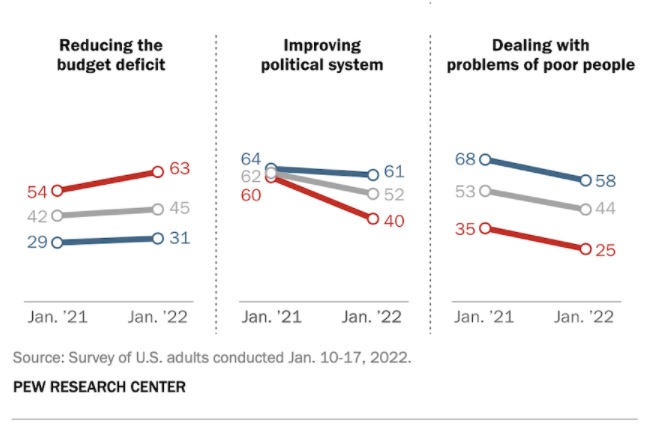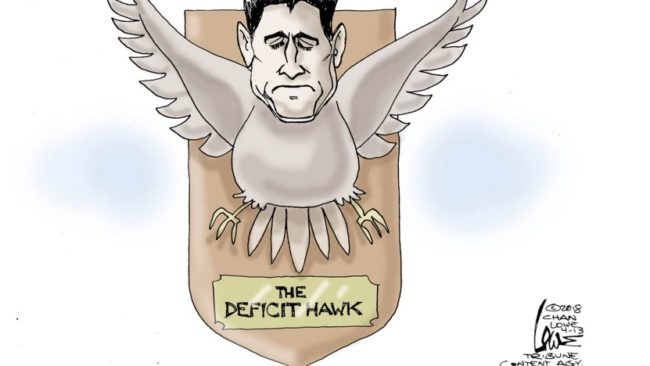<Extract from our weekly email to Clients>
The ‘shift to fiscal’ – we’ve all heard the argument, in fact, many of you have made it to me over the last year or so – and it tends to go a little something like this: “the world has changed post-covid, politicians have learnt that deficits don’t matter, from now on all crises will be met with massive blasts of fiscal spending, cycles will be shorter, inflation will be secular and deficit hawks will become exhibits in museums next to the Dodo”.
Well, I’ve been analysing politics for a long time and one thing I can tell you all for sure is that politicians have ALWAYS known that they can buy your vote with your own money! Deficits aren’t a real constraint you say? We know! It’s always been a political constraint, how else has just about every war ever been funded? Pork barreling is basically a prerequisite in politics, its nothing new. Strangely enough however, neither is Austerity or ‘deficit hawk’ politics. In fact, in political science, the ‘death of austerity’ has been incorrectly proclaimed more times than the ‘death of inflation’ – it just won’t die.
And an important question that we will be discussing over the next few weeks is “why?”.
It is seductive to think that the massive Covid spending bills in the US have somehow changed the world forever, but politics has a long and sordid history and the underlying assumptions that underpin the ‘shift to fiscal’ narrative need to be investigated a little more thoroughly – especially in a week where Bloomberg was running this headline: “Biden Budget Woos Moderates With Deficit Cuts, Flexibility”.

It was a little surprising that none of you sent me a link to the story but in case you missed it, Biden has set out a budget that will includes a $1 trillion reduction in deficit spending over the coming decade. What’s more, federal spending will decline $1.3 trillion from last year alone, as pandemic assistance programs and emergency financing offered to state and local governments are eliminated.
Now some of you will say that this is a direct appeal to Joe Manchin, but as I have written previously, poor old Joe has been providing incredible political cover for a very large number of moderate Democrats who completely agree with his views on the deficit but who fear being primaried from the far left. Make no mistake, this is an appeal to all moderate Democrats, and it has come straight out of the DNC. What is clear to the DNC political operatives we have spoken with is that A. Inflation is a vote loser and B. the Democrat-led Covid stimulus is getting the blame.
But to cut a long story short, the key takeaway here is that politics is as reflexive as financial markets. Covid forced an unprecedented amount of stimulus to be unleased and that is now being seen to have created inflation which, in turn, opens up an opportunity for political point-scoring for both Republicans, and more importantly, moderate Democrats looking to settle scores with the hard-left wing of the party. As Churchill noted, “never let a good crisis go to waste”.
Well-funded Republicans are already settling back into the comfortable old grooves of deficit politics and it is proving to be an excellent source of campaign funding – donors love it. This isn’t a stab in the dark though, RNC polling shows that austerity politics is still a vote winner. This is confirmed by a recent Pew Survey which found that the share of Republicans who prioritize reducing the budget deficit increased from 54% to 63%, while holding stable among Democrats (29% then vs. 31% now). This is in stark contrast to a fall in support of issues such as “Dealing with problems of poor people” – ouch!

While we will be following these political trends closely, the key point I would like to impart this morning is that the relationship between fiscal spending, inflation and policy is interdependent and reflexive – it is not enough to say that we have entered a world of secular inflation because the response function of governments has changed. Why? because inflation itself also changes the response function of governments and we are seeing that now in real time.
As ever, thanks for reading,
Mat
In the coming weeks we will be releasing more notes on this theme and Paul’s Europe team will try to address the key question I always ask proponents of the ‘shift to fiscal’ view which is “Why are deficit hawk policies so attractive in the first place. Why is it that predominately lower education, working class people across the developed world have gravitated toward a policy that appears to contradict their own self-interest?”. Paul’s team will do a deep dive on Merkel’s famous Schwäbische Housewife speech and a short history of Austerity politics.
